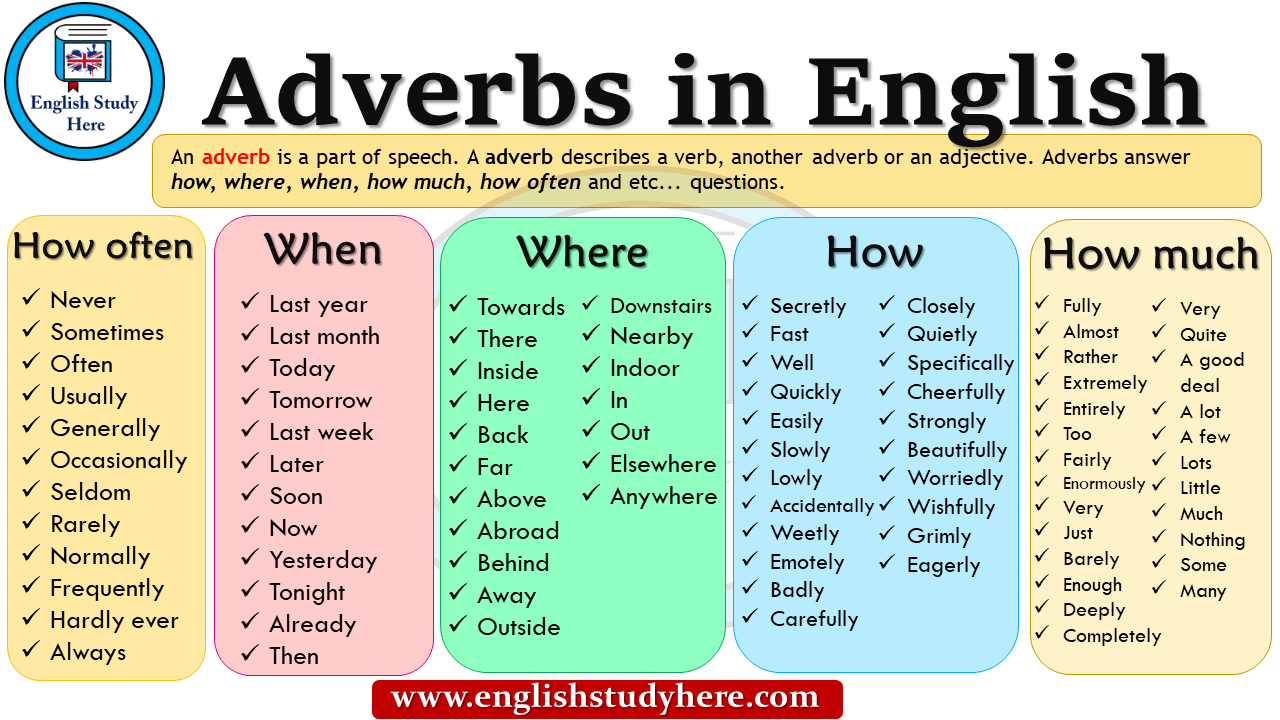

For example,Īnd if we change these two sentences to use a verb instead of a noun, they become: So the only we usually use with an adjective is the verb ‘to be’. We use an adjective to describe a noun, and an adverb to describe a verb. In the first sentence ‘immediately’ relates only to the first verb, while in the second sentence ‘immediately’ refers to both actions.Īs you can see from this example, you can’t separate a verb and its object. They accepted the offer and moved out immediately.They accepted the offer immediately and moved out.

If there are two verbs in the sentence, the position of the adverb can change the meaning. Sometimes however, the adverb is put before the verb to add emphasis to the meaning. The students are listening attentively.In most cases, adverbs of manner come after a verb. Where does an adverb of manner go in a sentence? It rained heavily all through the night.She dresses very elegantly, doesn’t she?.Kids, try to do your homework quietly, please.My brother drives very fast and aggressively.Go straight down this road then turn left.Julie tearfully said goodbye to her boyfriend.A car suddenly came round the corner and nearly hit us!.Try to do it carefully so we don’t have to redo it.The children did really well in their test.However, there are also some irregular adverbs: When an adjective ends in -y we change the -y to -i then add -ly. To make adverbs of manner, we usually add -ly to the adjective.

For example,Īdverbs of manner are really useful because they let us add a lot of extra details to descriptions, to make what we say more interesting and dynamic to the listener or reader. (adverb of manner)Īn adverb of manner describes how you do an action.


 0 kommentar(er)
0 kommentar(er)
